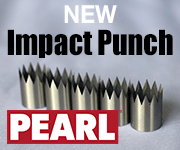EC packaging waste directive drives European legislation.
- Published: August 01, 1995, By Sacharow, Stanley
The final adoption of the EC Packaging Waste Directive at the end of 1994 has been the force driving most European nations to finalize their own packaging legislation. Propelled by the general upward trend in raw material prices and the increasing costs of waste collection, many countries are scrambling to find regulations that fit the new directive.
The 1991 introduction of the German Ordinance set the agenda for the rest of Europe. Subsequent packaging waste legislation was either inspired by it or was a defensive reaction to the German system. The legislation allows consumers to leave secondary packaging at retail outlets and requires manufacturers to take back the packaging unless industry has an approved collection scheme.
As a reaction to the ordinance, German industry created the Duales System Deutschland (DSD), which coordinates the return and reuse of packaging materials. Manufacturers who sell or import packaged products must pay a fee to DSD for this service. Payment entitles them to put a Green Dot on their packages.
The DSD system involves neighborhood igloos to receive glass bottles, bins for waste paper and yellow containers to receive all other packaging wastes. The paper bins and yellow containers are provided to residential and certain small commercial establishments. The DSD then collects these materials and conveys them either to sorting centers or directly to the recyclers. Nonrecyclable wastes from sorting centers go to municipal trash disposal.
Under the DSD each package is assessed a fee paid by the participating company, and the monies raised are used to administer the DSD and pay for collection, sorting and related recycling costs. Originally, the fees were determined by the volume of the package or container, regardless of material type. However, the fee structure was changed on Oct. 1, 1993, and is now based on the weight and type of the packaging material.
The Green Dot fee is incorporated in the price of the product/package combination and is not listed on the package as a separate cost item.
The license to use the dot on packages is granted when the material industry guarantees the unconditional acceptance and recycling of individual packages separate from the municipal waste system.
How the guarantee functions depends on the material concerned. In the case of composite board packaging for liquid foods (as well as glass and steel), the industry concerned has issued an unconditional acceptance and recycling guarantee. This means that users of those materials can sign a licensing contract for use of the Green Dot without furnishing any further proof.
In the ease of paper and board packaging, Interseroh AG has issued a general acceptance and recycling guarantee that applies to all packaging material made up of more than 50% paper or board in weight terms. In the ease of plastic or composite packaging, the plastics manufacturing and processing industry has set up the company DKR (Deutsche Kunstoff Recycling) to issue individual acceptance and recycling guarantees for specific kinds of packaging within the spectrum of plastic packaging.
Deustche Aluminum Verwertung Recycling GmbH provides an acceptance and recycling guarantee for packaging made of or containing aluminum foil. There are acceptance and recycling guarantees for all customary packaging materials, which also apply to packaging imported into Germany.
Although there is still no legal basis for the recycling of packaging waste in the 10-member European Community, the German Green Dot is now being widely promoted as the ultimate pan-European logo. With three years of use, it's the granddaddy of all legislation and has been emulated by many nations.
In February 1995 the DSD set up the Brussels-based Packaging Recovery Organization (PRO), an umbrella organization whose aim is to "clarify the prerequisites and legal criteria for awarding its own Green Dot logo and promote its use to manufacturers and distributors of packaging."
More than 25 nations worldwide have set up systems similar to the DSD, and interest has reportedly reached as far as the US and Japan. However, it is not known how the German Packaging Ordinance will fare under clauses introduced to prevent market distortion.
Although the final EC Directive has not been given wide circulation, it is obvious the recycling targets set are less than the original DSD rates.
With pressure building in Germany in response to the tough rates of the 1991 ordinance and the lesser rates set by the EC, a revised ordinance will be released soon. It will include provisions that incineration is an acceptable form of recycling.
The German government has opposed the introduction of eco-taxes on packaging, believing that local eco-taxes aren't a solution to packaging waste problems.
Denmark and the Netherlands have opposed the dilution of the EC Packaging Waste Directive, fearing that their own national legislation would be threatened. Spain and Portugal lag far behind the northern nations in adopting effective legislation.
Since the final EC directive leaves each EC country free to adopt its own waste management hierarchy and recovery scheme, harmonization will prove to be a difficult objective. How this will shake out is anybody's guess!









